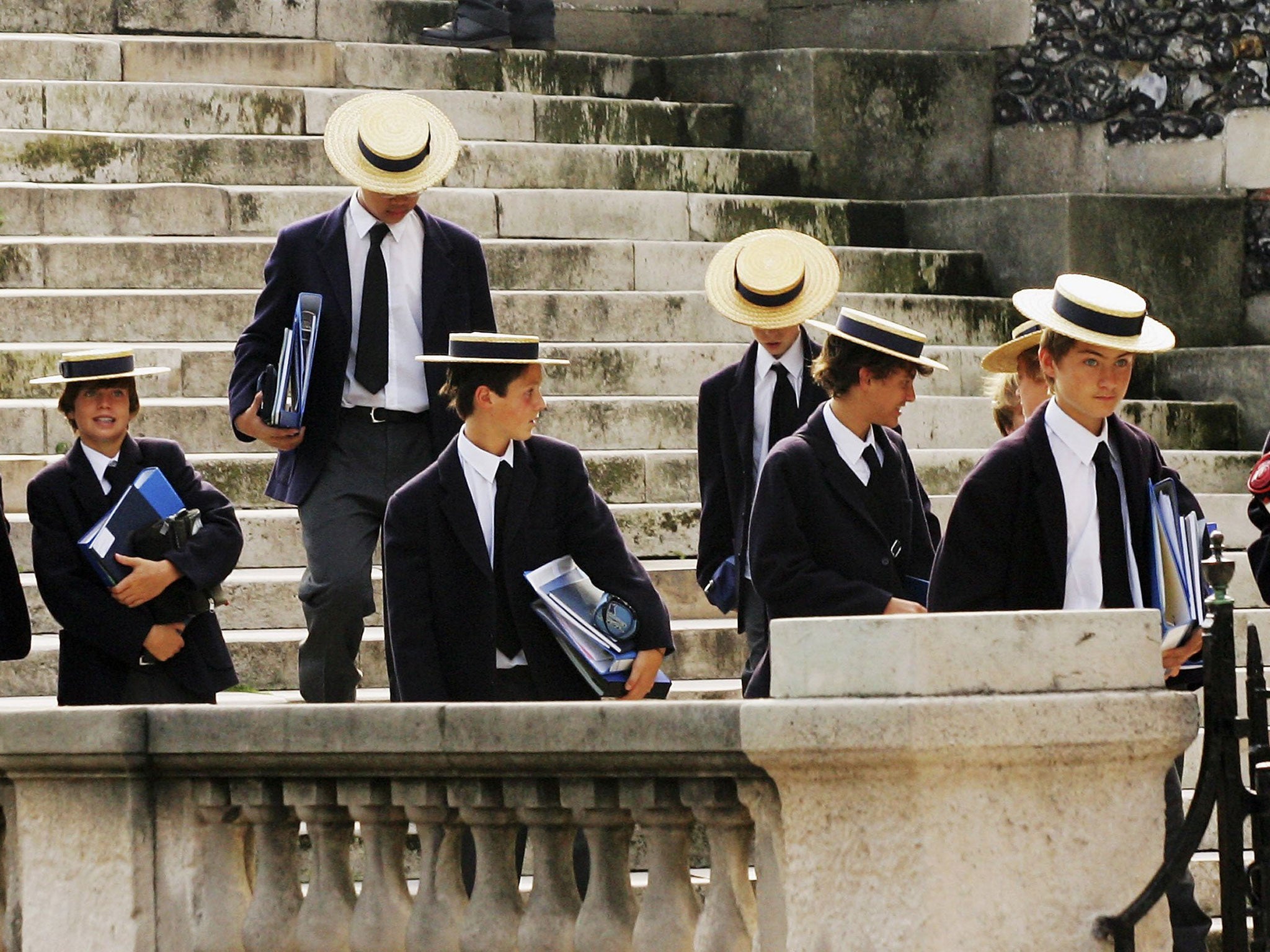The Old Boys by David Turner, book review
A sympathetic analysis of private education may amuse, but it fails to address the issue of inequality

We live in a country where the Prime Minister, the Mayor of London and the Archbishop of Canterbury are all old Etonians; where public schoolboys shape more than half of Britain's "elite", and where even the entertainment industry has been taken over by toffs – Headmaster: Fry. S (Uppingham); Head Boy: Cumberbatch. B (Harrow); Senior Prefects: Redmayne. E (Eton), West. D (Eton) Lewis. D (Eton) Hiddleston. T (Eton).
If you are comfortably amused by this information, then David Turner's sympathetic history of private education may be just the ticket; but if you are worried by the long shadow of unearned entitlement, social injustice, bullying, paedophilia and casual racism present in the history of such establishments, then your response may be more nuanced.
The approach is broadly chronological, starting in the 14th century, with the big guns going first (Winchester, Eton, St Paul's; then Shrewsbury, Merchant Taylor's and Westminster). All of this is diligently done, and there are informative moments when it seems extraordinary that these schools got off the ground. The difficulty of finding teachers of sufficient quality and charging the fees necessary to sustain privilege was harder than everyone first thought.
"Another problem was more straightforward", Turner drily observes, "the public schools were beating their children too much."
An obsession with the classics at the expense of almost every other subject, a focus on sport to exhaust boys away from hormonal "vice" and an indifference towards troublesome assessment in the form of 'O' and 'A' Levels threw the future of such schools into doubt. But, as Turner tellingly points out, their hopes improved when state education became so appalling in the 1970s and 1980s and there was sufficient middle class "flight" to improve standards. This coincided with public schools finally getting their act together (mainly by admitting women) and realising that fagging and flogging were not the only means of building character.
In many ways, this book is a fascinating account of the rise of privilege, but I would have liked more context and analysis. If one is going to talk about the seed-beds of patriotism, then it might have been informative to discuss the Royal family's adoption of Gordonstoun as a favourite school; unhappiness and rebellion would have benefited from even a cursory mention of John Betjeman's Summoned by Bells or Lindsay Anderson's If; and the controversial business of charitable status, by which private schools enjoy beneficial tax advantages, is hardly mentioned.
The writer, like me, went to a public school (I went to Marlborough, Turner does not confess) and his position is more kindly than mine. I still find it bizarre that people are prepared to pay for their child's education three times over: once to the state, secondly in school fees, and then a third time for tutors to cram for re-takes. The cost is approximately one house per child (five years of secondary education at £35,000 a year is £175,000; twelve years if you start from prep school is £420,000; and as this is post tax income you might as well add 40 per cent. Even then this won't quite "do" in London.)
So why do people go through with it? It seems to me that, like business travel, the main purpose of private education is the avoidance of the poor. Set in secluded grounds, surrounded by playing fields less fortunate establishments have long since sold, public schools are havens of protection from the sordid business of getting on with people who are different. The child's upbringing is almost entirely outsourced, with mothers emailing proxy parents (otherwise known as "housemasters") to check on the progress of children they hardly see. When the little darlings do finally emerge, some 12 or 15 years later, they find jobs in politics or the law where they can still keep the poor at arm's length by sending them to prison or to war.
Staff are reassuringly, imperialistically, foreign; the divine Filipino does the cleaning, the Pole does the plumbing, the Indian the electrics and the necessarily fit and white New Zealand nanny doubles as eye candy for hubby. There's no need to meet the English working class at all. Job done. Pimms all round. Do we really want to live in such a country? And, if so, shouldn't books like this address the issue more critically?
Join our commenting forum
Join thought-provoking conversations, follow other Independent readers and see their replies
Comments
Bookmark popover
Removed from bookmarks